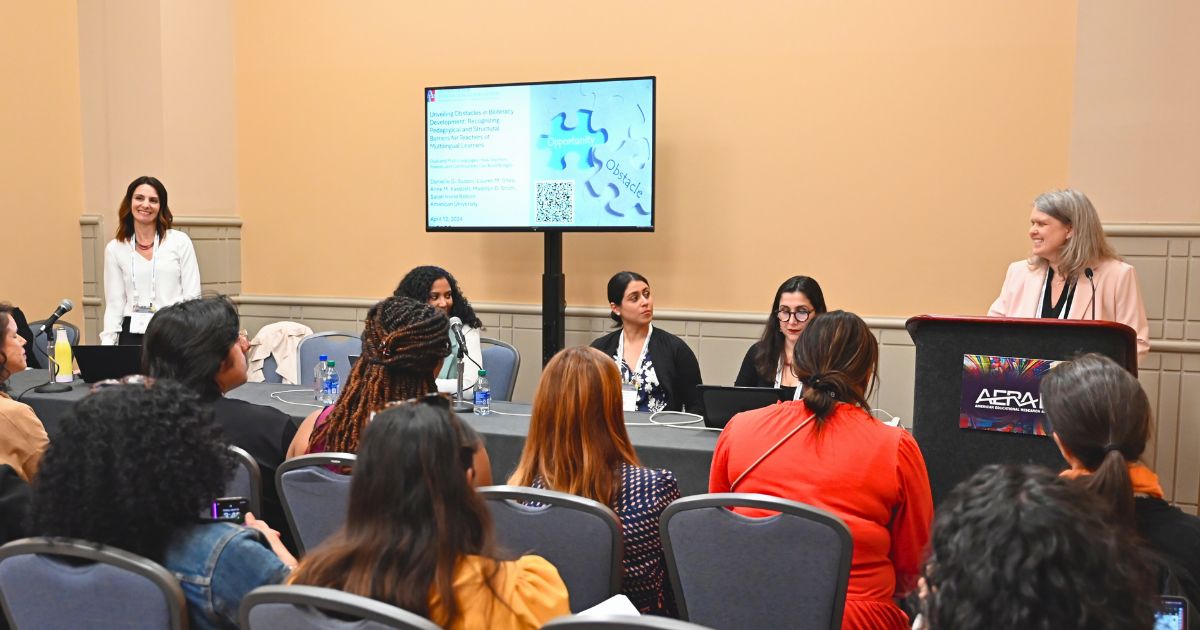Contact Us
Spring Valley Building , Room 471 on a map
4801 Massachusetts Avenue NW Washington, DC 20016-8030 United StatesResearch at AU's School of Education

Introduction
Welcome to Research at the School of Education at American University. At SOE, we value excellence, equity, antiracism and social justice, diversity and inclusion, collaboration, and innovation. These values are integrated into the types of research our faculty members do and the sponsors with whom we choose to collaborate. The research that SOE faculty develop leads to skillful teachers, stronger schools, and a better education system to support students.
The research team at SOE will collaborate with faculty in finding opportunities, applying for awards, and managing the grant once funding is secured.
Guidance for Navigating Federal Research Policy Changes
OSARA is actively reviewing these updates alongside federal agencies and sponsors to understand their implications for your work. This guidance aims to address these developments and provide actionable steps to ensure continued compliance and operational continuity.
- NIH Guidance on Indirect Cost Rates
- Government Information Data Rescue (More information below on AU Research tab in pull-down menu.)
Research Highlights

The INSPIRE Lab
Focuses on health disparity interventions that simultaneously address mental health and social needs

Tutoring Grant
The AU Future Teacher Tutors were awarded up to $739k in funding to expand tutoring in DC schools

AU Researchers Lead Major Study
The two-year study developed comprehensive strategies for creating more equitable learning environments.
